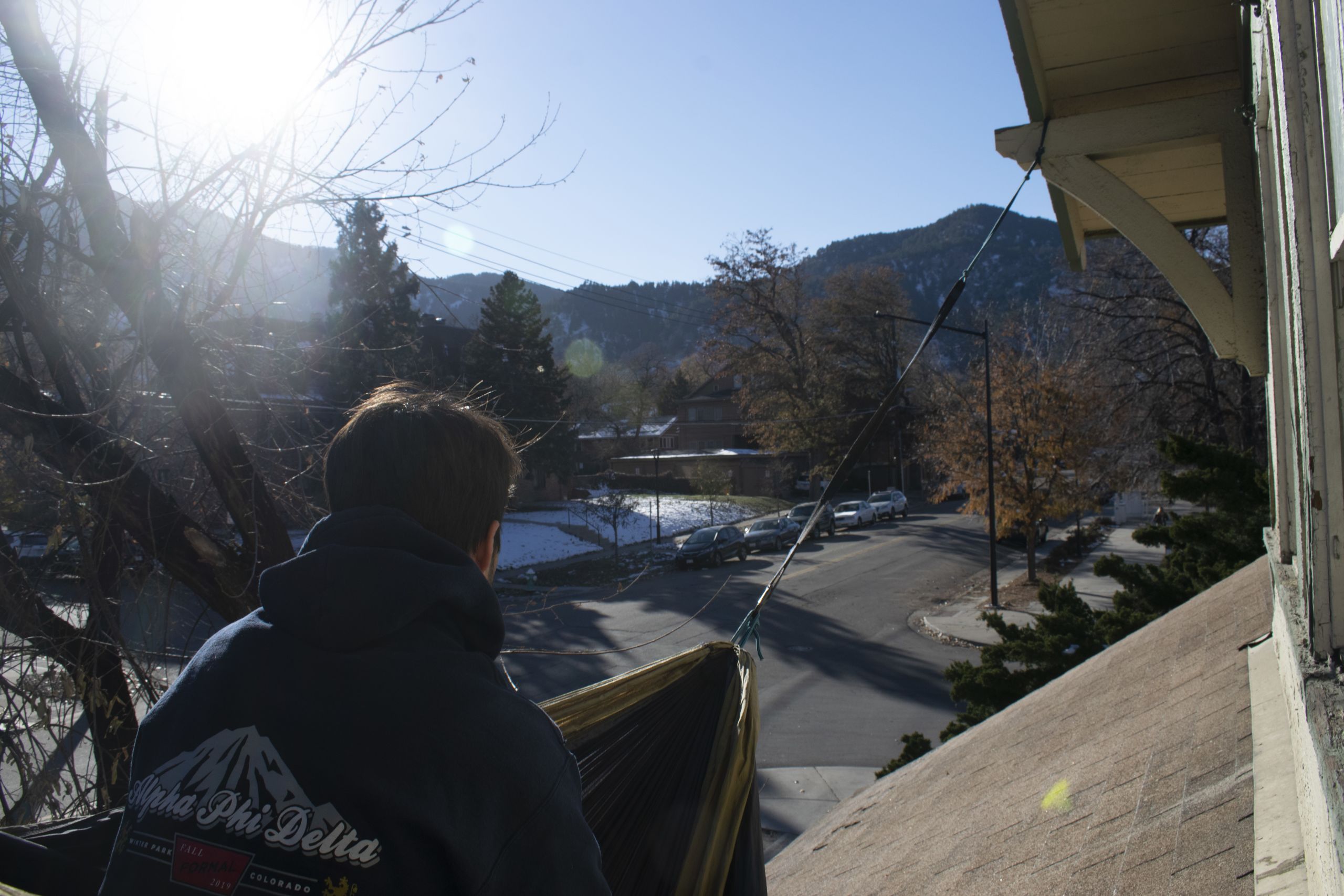Easy Targets
Fraternity life and the semester of shame during COVID-19
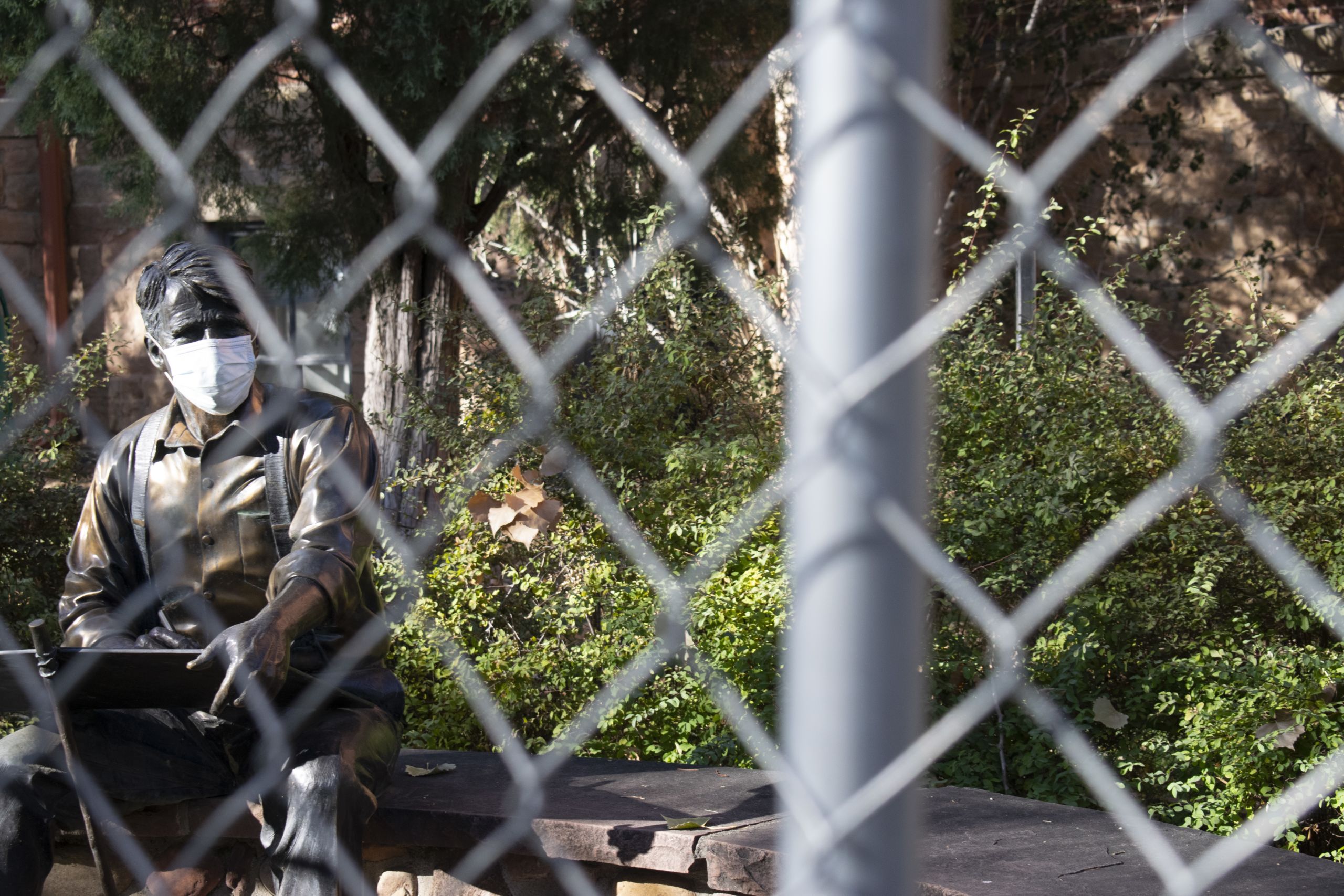
It was March 16 when COVID-19 became real to me. I had seen news coverage and kept myself informed, but it was not until the day after my 21st birthday that the gravity of this pandemic hit me. Four years of resisting the temptation of a “novelty ID” and chewing people’s ears off about how they do it in Europe had led to nothing. I got no payoff, no Sink Shot, no recognition that I had made it. Instead of the taste of adult freedom, my first week to legally drink was soured by a state-wide public health order: stay inside or away; cover your face.
It feels so selfish looking back now, but I was resentful. “How can they make the choice for all of us,” my housemates and I would volley back and forth. Even worse, at the time my consideration for my own fun was trumping my compassion for the growing number of sick and dying. I felt it in the air, too. With summer right around the corner, most of my peers back at home, and the canceling of Spring graduation a day later, no one was happy, and now those of us who wanted to could not even go to the bars to get away from it. It was at the bars. It was EVERYWHERE. The threat of the virus was now on the minds of every remaining member of the Boulder University Hill community, myself included, but soon it would be on our doorsteps.
As the pandemic grew to occupy every facet of our lives, I started to feel this general anxiety turn into something else: a resentment and blame toward my community which brought new challenges every day. I live in the Alpha Phi Delta fraternity house on the Hill, right on College Avenue, overlooking the busiest block of young adults in Boulder. The one with the glowing purple letters. We are a small house with around 30 active members but see a lot of the action on the Hill because of our location. Both the university and the city’s relationship with fraternities over the past two decades has been rocky, to say the least. Following the separation of fraternities from CU in 2005 and the establishment of the Boulder Independent Fraternity Council (IFC), fraternities have been the targets of drugging and sexual assault accusations, criminal hazing charges, and most recently, COVID-19 violations.
My brothers and I started to worry about what might happen if our cousins didn't listen to the health orders. Normally, problems that arise when young people get together do not threaten those without an invitation. Now in the eyes of the public, youthful revelers might become mass killers.
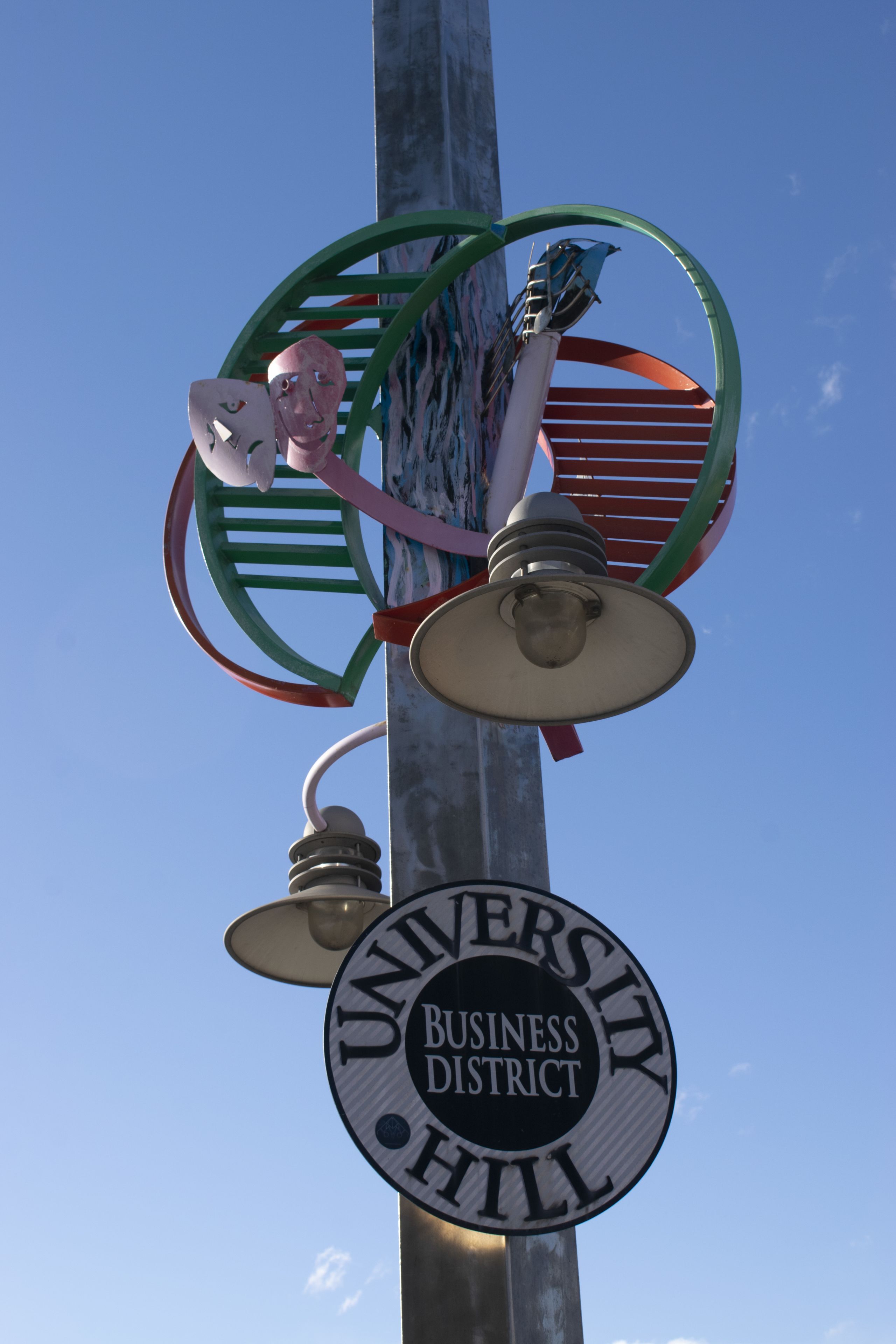
It did not take long before reports of large gatherings of young people and parties at fraternity houses began cropping up in local news. This video showing hundreds of students and young adults at Boulder Creek prompted a shutdown of the park area, and went viral, making national news.
Graduation events and massive gatherings seemed to fly in the face of mandates and everyone's best interests.
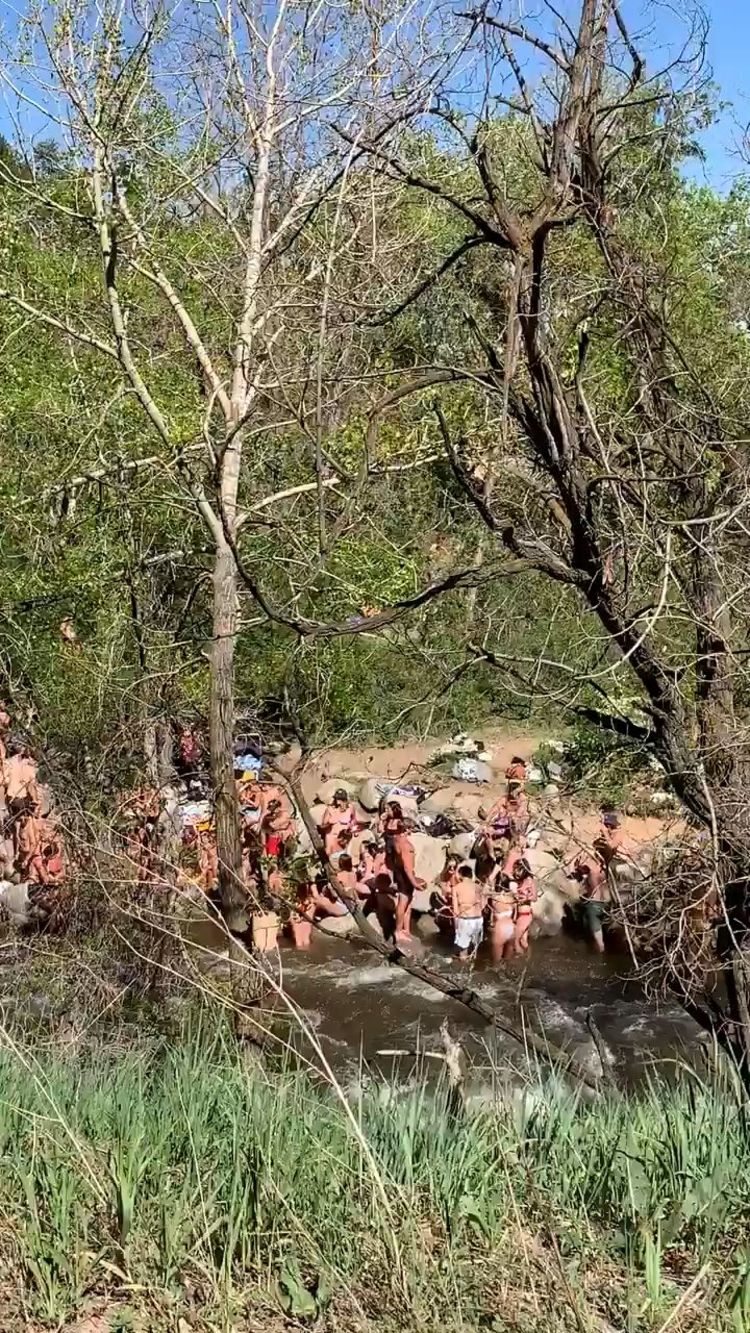
In March, the state of emergency seemed temporary. “Flattening the curve” was still the dominant rhetoric with no one expecting a months' long ordeal.
The University of Colorado Boulder's classes went full-online, and the general expectation was that, by the next semester, we would be back to normal.
We were naïve.
As two weeks turned into two months and the summer into the year, everything seemed to change by the day, and those of us who stuck around began to see a catastrophe unfold.
Throughout the summer, we were treated to good examples of bad ideas. From graduation parties locally, to lockdown protests in Denver, to riots nationally, no one seemed to be able to keep their head on their shoulders long enough to grasp the severity of the situation.
The growing reaction toward students from non-CU-affiliated Boulder residents was one of resentment and disdain, and the more it was reported on the more it seemed justified.
The entire time we struggled internally with vandalizations of our house and break-ins, unlike anything we had seen before. The vacuum of students on the Hill and self-isolation attracted opportunistic criminals and created problems for residents and police officers alike.
The new semester presented a serious challenge to the university as well.
The return of students and arrival of incoming freshmen in August produced a boom in infections on and off the CU campus, with the majority being relegated to those affiliated with CU, a trend that has only recently declined.
In an act of courage, or perhaps one of futility, the school elected to allow in-person classes, provided students follow certain guidelines on campus.
CU could not control what its returning students did off-campus, however, and after a summer of lockdown many of them could not wait to mingle, COVID be damned.
By mid-September, in-person classes were fully transitioned online. Despite in-person classes return on Oct. 14, many professors preferred to maintain the online platform.
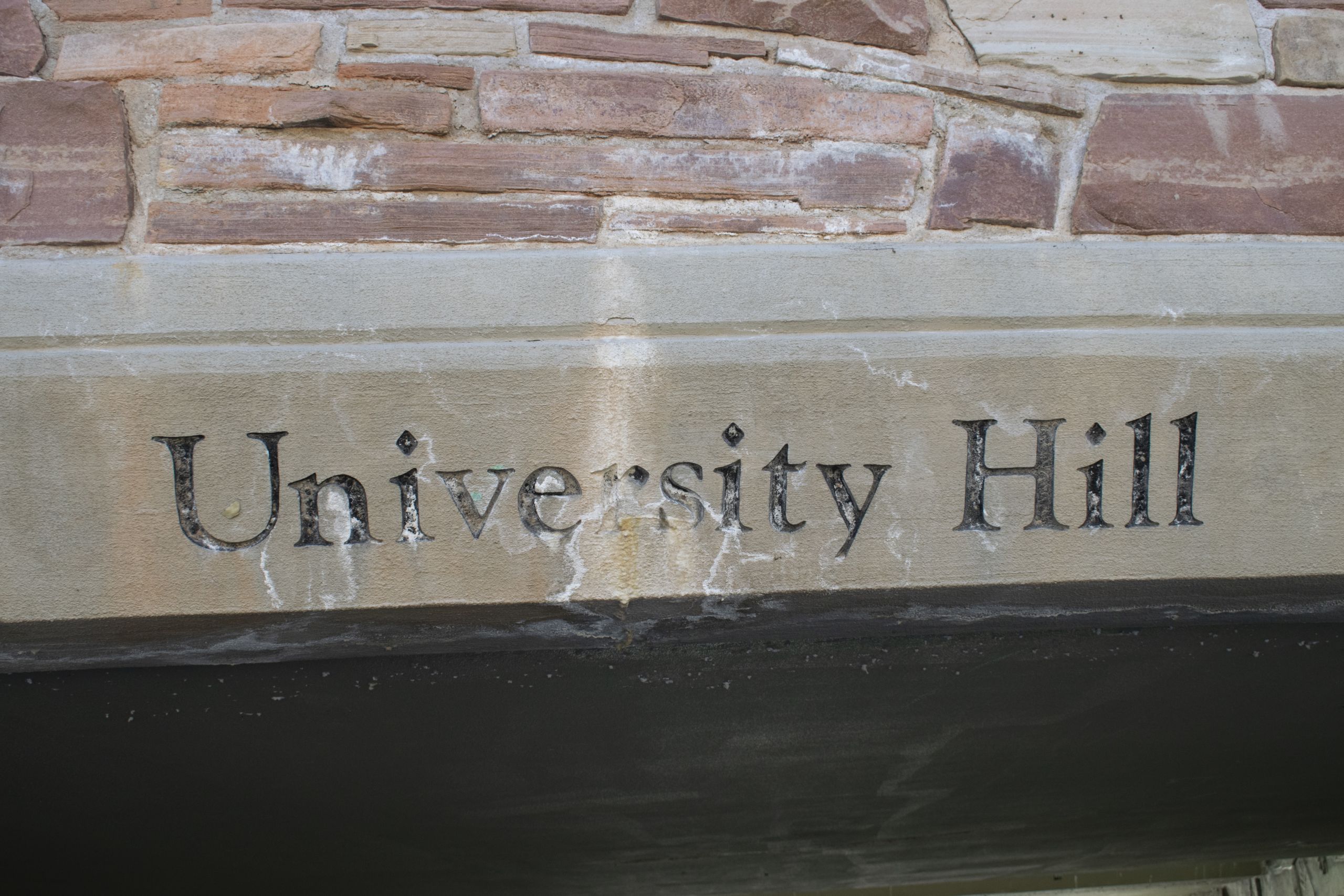
My own house watched, wondering who it would be. Who would be the ones to break the seal? Party starved fraternity members, expectant wide-eyed freshman, and a sneaking assurance that “this virus only affects the old and sick” meant it was only a matter of time. We followed the guidelines, held online rush events, and delayed pledgeship for several weeks, but one house does not a Hill make.
It did not take long. Before August was out, photos of fraternity members partying on the Hill were given to CBS Denver by CU senior Miles Levin, who described his shock and disgust with the situation on air. A video surfaced of a house operating under normal weekend conditions. No masks, no social-distancing, having an admittedly fun-looking time.
IFC president Adam Wenzlaff made a statement at the time.
"The behavior of your fraternities over the last two weeks has been nothing short of outrageous. ... Start acting like men, not boys."
These actions flew in the face of not only the city, school, and IFC’s guidelines, but also those of us who had complied. Seeing other houses and individuals openly dismiss any concern with the consequences of their actions was not only deeply upsetting from a public health standpoint to the school and Boulder health department, it also demonstrated that even if some of us do what is right, someone else’s actions might not only undo it, but drag us down too.
On Sept. 24, following the data, and with painstaking consideration, Boulder County Public Health issued a two-week stay-at-home order to all 18-22 year-olds in Boulder, and designated 36 individual properties that had been identified as potentially exposed, our own included for reasons we never learned, and most of which were fraternity houses and annexes, as problematic properties. We had all been called out.
The order went into place after a serious boom in cases within the age group, and reports of social activity at the addresses. The situation had come to a head, and with hundreds of understandably upset Boulder residents blowing up their reporting lines, BCPH’s hand may have been forced.
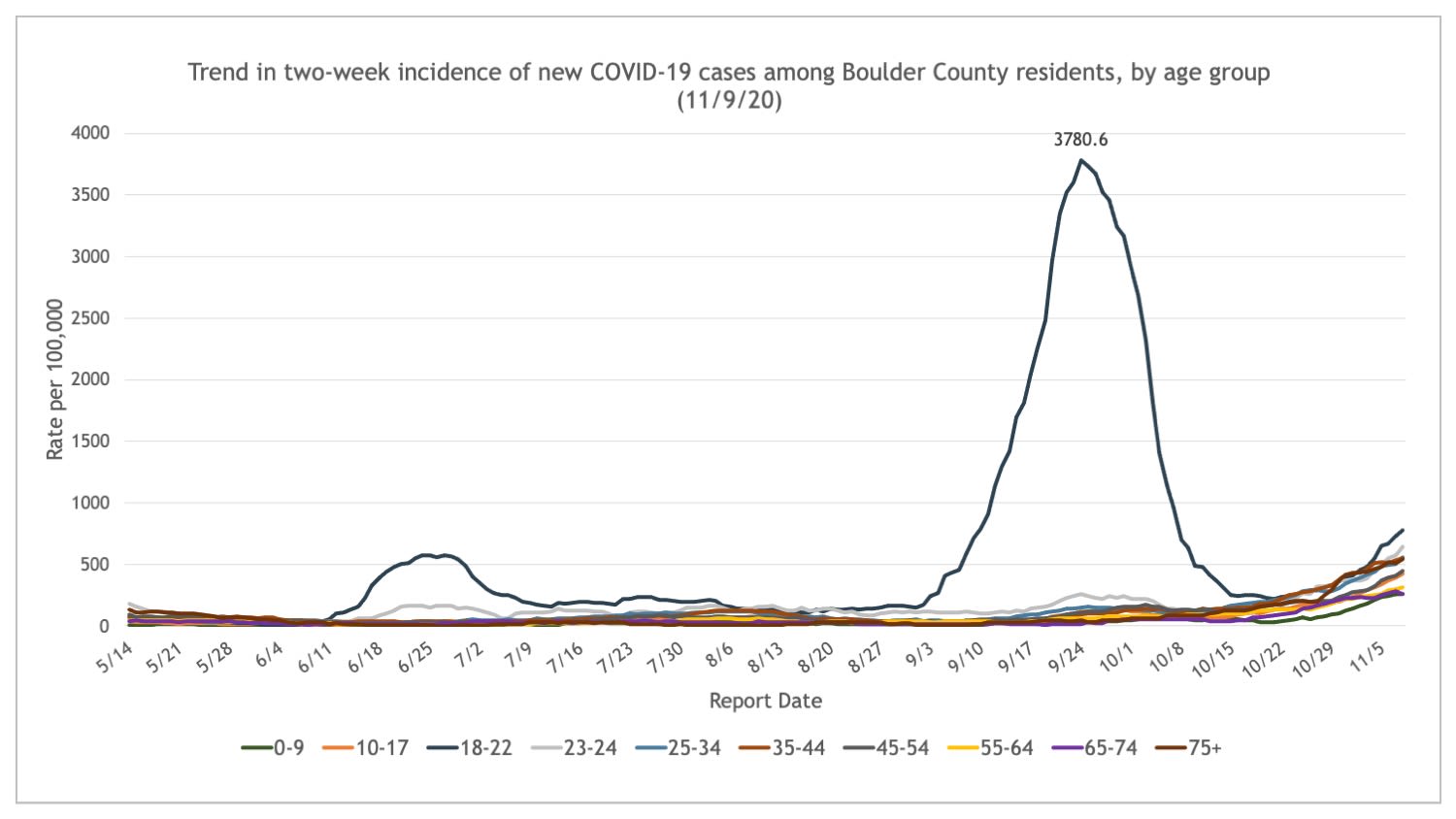
Provided by Boulder County Public Health
Provided by Boulder County Public Health
How did we get here?
Is it just the case that young people lack empathy? Even when the deaths of vulnerable people are staring them in the face, it seems like students, especially those involved with fraternities, just do not care when it comes to this virus. They may wear a mask outside, or stay a few extra feet away, but they will also, as Florida Gov. Ron DeSantis said, fight for their right to party.
How much of the blame pointed at fraternities is warranted?
Surely some, but where many of us see a problem is not in people's condemnation of specific actions by fraternities, but of the entire demographic and its many individual cultures. This type of condemnation sows division and distorts the truth.
The position I found myself in was not unfamiliar. Those of us involved in fraternity life know that although we see our houses and brothers as unique, distinct from one another in every way, we know that others take an antithetical view.
Instead of seeing fraternities as individual organizations, it is much easier for the uninvolved public to lump all Greek organizations together, along with their individual members and problems.
Our letters may be different, but in the eyes of many, they stand for the same thing. Fraternities are not a homogenous group. They involve specific beliefs and practices with other members and are often associated with specific cultures as well, especially concerning nationality and religion.
The stereotype of the “frat boy” is ubiquitous, however, and paints a picture of an inconsiderate, mentally, and emotionally bereft drinker and womanizer. That is not who we are, what we believe in, or how we see young men. When such a description finds itself part of the cultural zeitgeist, however, it is not hard to see how fast these young men become villains in the eyes of much of the public.
Why wouldn't they? After all, news stories about individual houses tend not to be about their newest philanthropy event or mother's day weekend celebration, and are almost always about their mistakes.
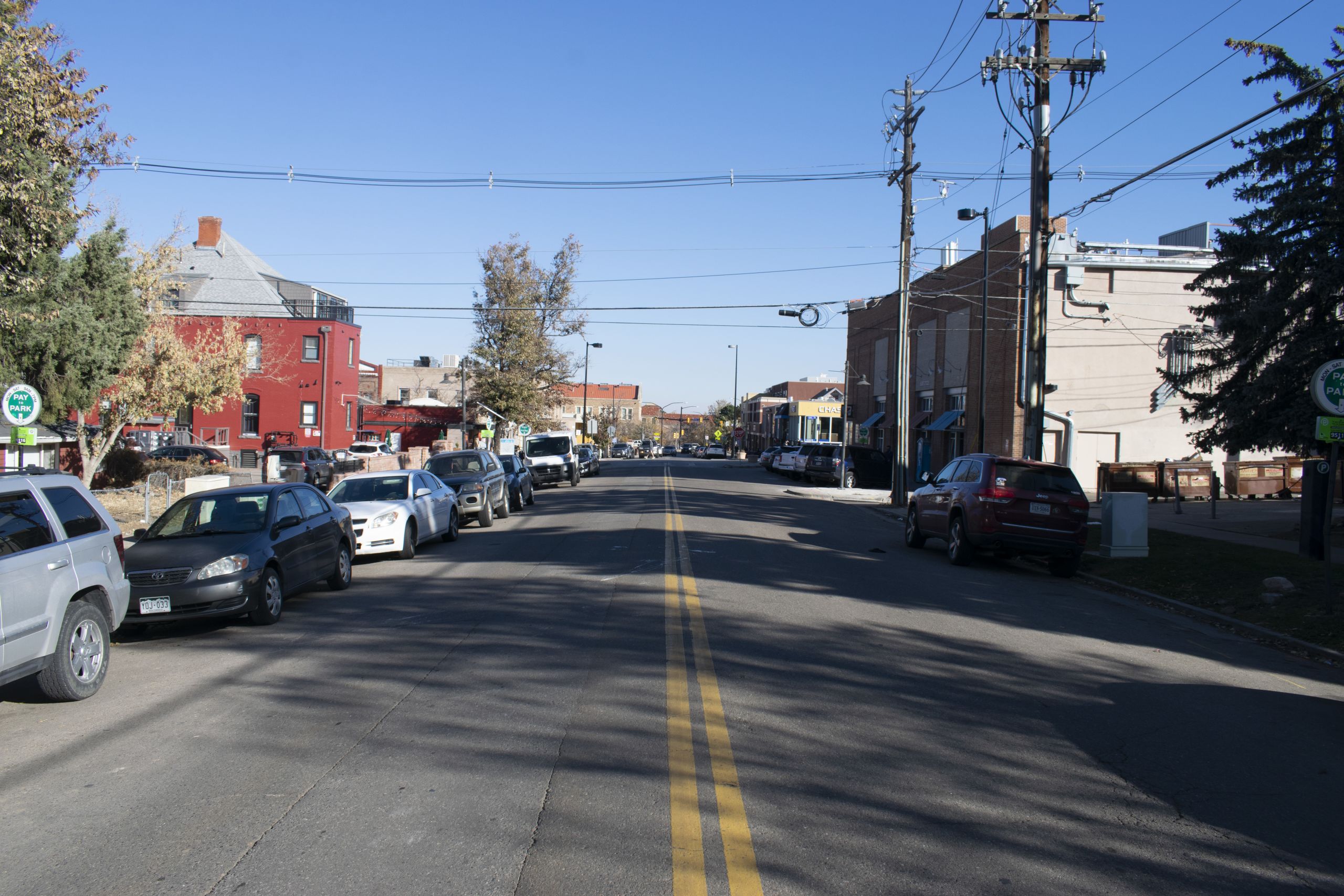
Chana Goussetis is the Public Information Officer for Boulder Country Public Health, and she clarified their official position.
“The perception did not contribute to the lockdown. We had a lot of people telling us what was going on, but we made that decision based on data. We had a lot of conversations about targeting a specific age group. ... At the end of the day the state health department said, ‘you have to do something … otherwise we will shut down your county.’ We thought about the economic and mental health impacts of closing the county again, versus the effects on this smaller group. We tried to think of all these things that we could do that would have the least impact on the largest group of people. We have to look after the entire county."
It is good to know that BCPH is making decisions based on science, but their contribution is only one angle, and it provides a different story through data. Acting on the information of broad data is a non-judgmental way to consider fraternity impact on COVID, but unfortunately for the Hill community, BCPH are not journalists, and journalists need a story.
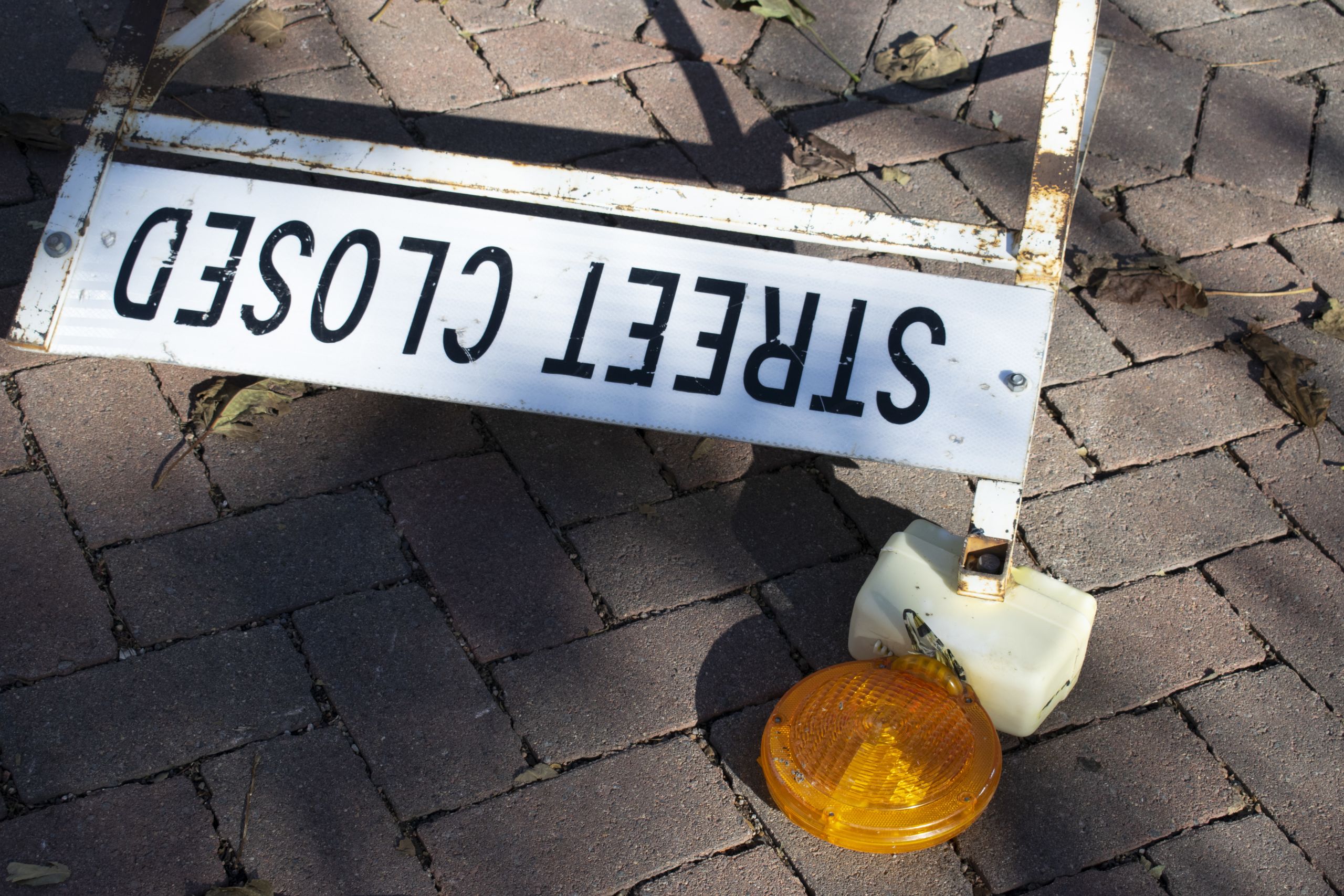
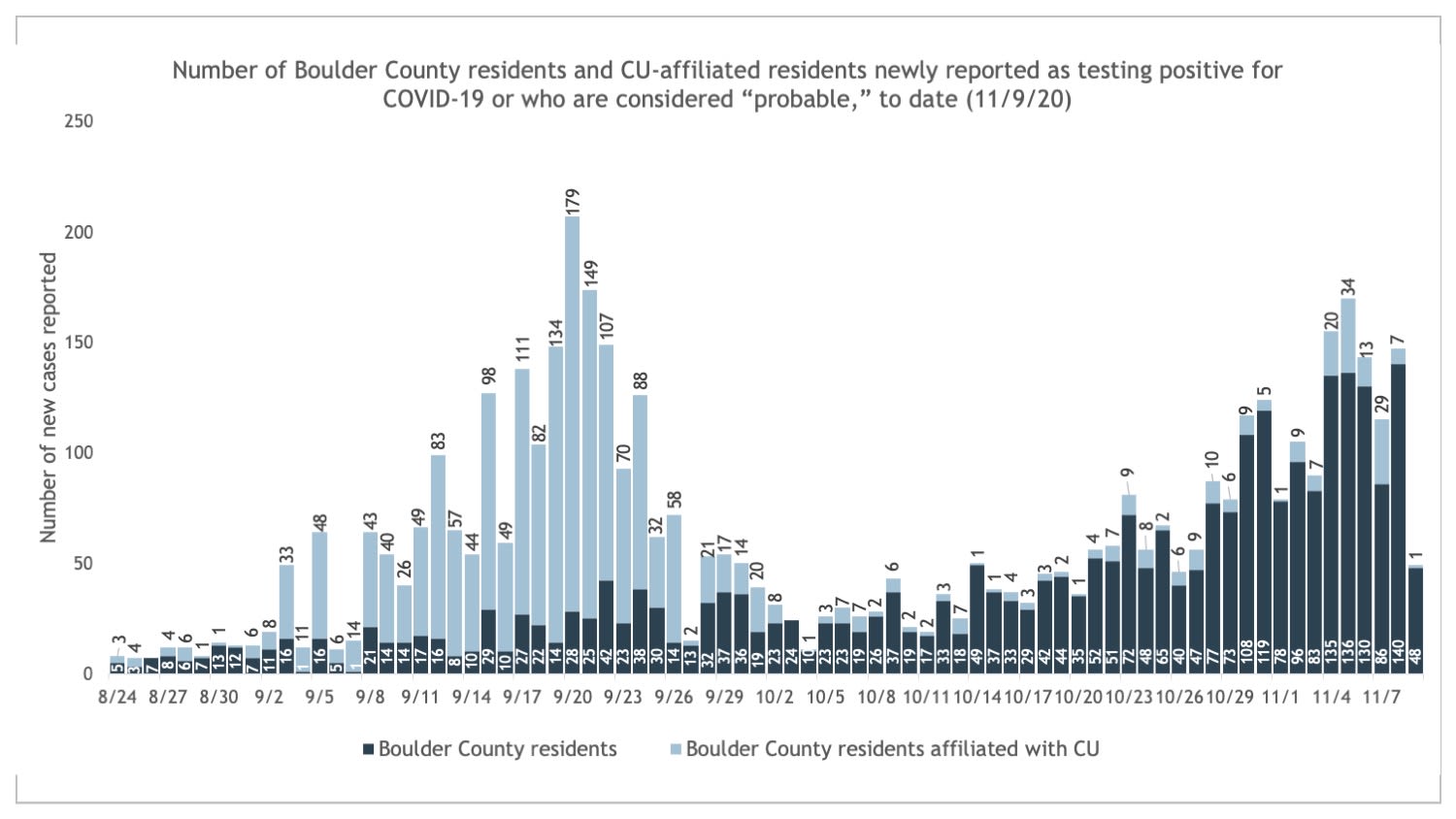
Provided by Boulder County Public Health
Provided by Boulder County Public Health
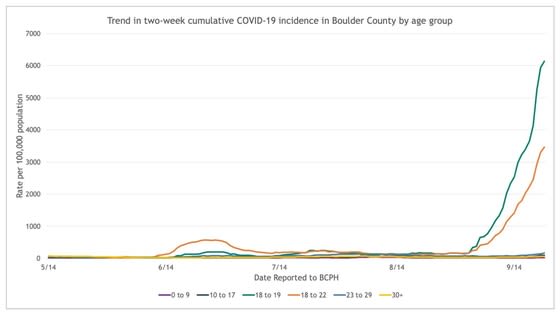
Provided by Boulder County Public Health
Provided by Boulder County Public Health
The Denver Post and The Daily Camera produced stories about five fraternities that were fined for violating COVID Guidelines in August, however, neither mentioned that only one of the houses ever received an official citation from the county. All of the other fines given to the houses came practively from the IFC.
The Daily Camera's article "Boulder County officials: Recently infected residents with coronavirus reported being at Hill parties or protest" is misleading, as the residents in question also reported being around sick family and traveling. Suggesting the conclusion of the piece, parties and protests are causing more infections, through its headline reveals that this piece is framed in opposition to anyone engaged in those activities, and projects that readers should consider these events the cause of infection despite supplying other possible means. It is not news that more people were infected unless the way they were infected is dramatic or involves villainous characters or circumstances.
The Post published another piece titled “New COVID-19 outbreaks at 6 Greek organizations at Colorado universities; CU-Boulder tops 1,500 cases.” Although there is nothing factually wrong with this headline, it is misleading. Firstly, none of the six organizations are at CU Boulder, which begs the question: why include Boulder in the title if the stories are not connected? Second, only two of the Greek organizations listed are social fraternities, meaning that the individual involvement of members in the spread of COVID for the rest is no different than someone infecting/being infected by their roommate. Not insignificant, but not what the title of the article suggested. This kind of suggestive titling is not without purpose, as it is provocative and likely to draw in readers, but is damaging to those who find themselves subtly accused. Later in the article, the author, Meg Wingerter, states, “Most (cases) are tied to Greek organizations or sports,” without any evidence, data, or further substantiation.
The Daily Camera hosted a guest op-ed titled “Let’s get serious about the Hill” by Jan Burton, a former Boulder city council representative, in which she suggests that Boulder officials should turn off utilities and potentially evict tenants from houses for violating COVID guidelines, and apparently sees herself and the city of Boulder as “parents” of students who need to dish out punishment when their advice is not taken. She assumes that the people setting off fireworks behind her house, those gathering at the creek, and those hosting parties on the Hill during the summer are all the same people, calling them students, despite writing the piece before the start of the fall semester, and despite admitting to taking no action herself, directly or indirectly to stop it. This is not Jan Burton’s city any more than it is Phi Kappa Tau’s or Sigma Alpha Epsilon’s, but Burton positions herself and students as mutually exclusive, separate members of the community, rather than recognizing they are both parts of the same community for which she used to be a representative. She is willing to use her past state authority and position of power to project a targeted and ill-informed message without any consideration for the depth of blame she is fostering.
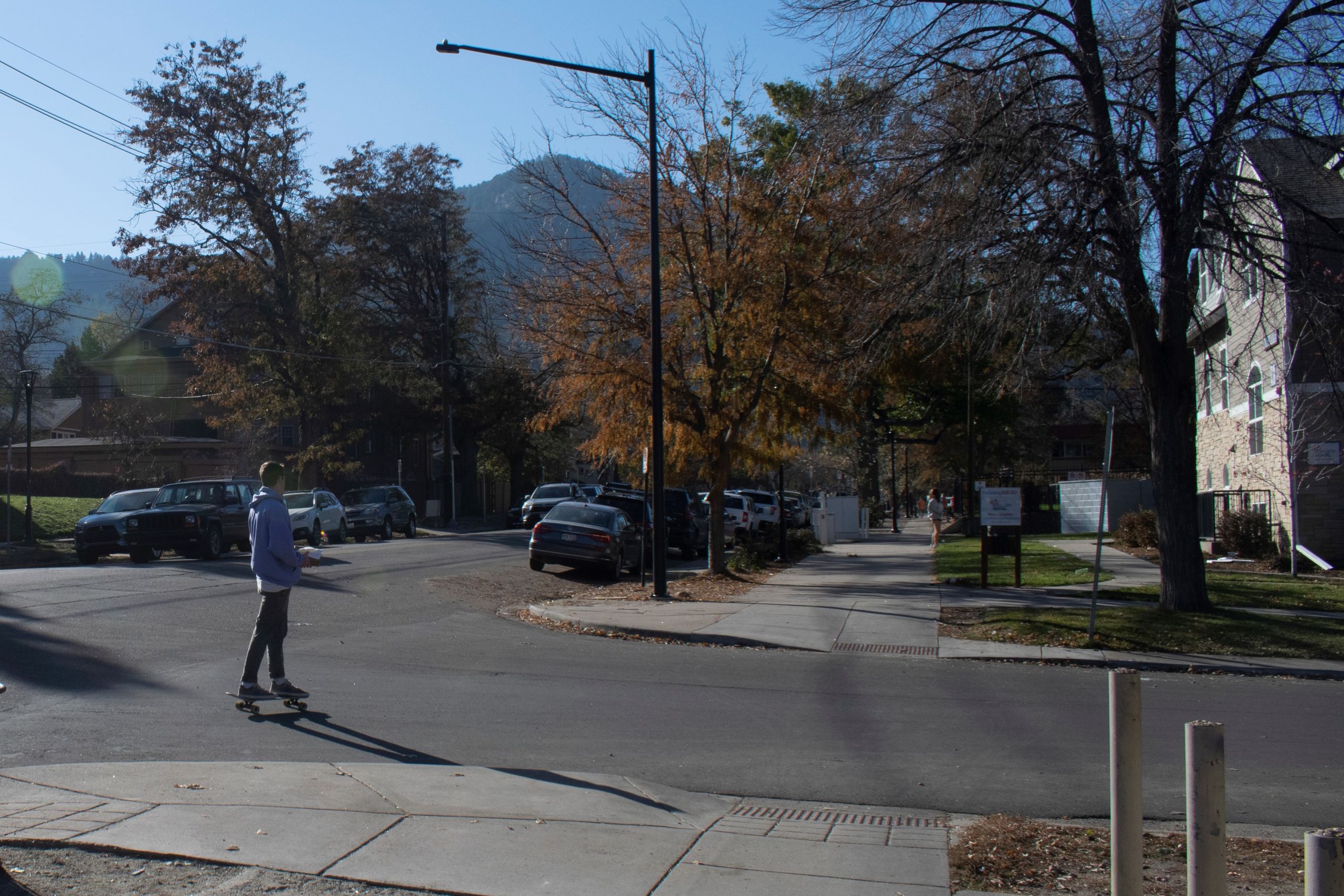
There are good examples of reporting on the topic, but these are the types of stories that really stuck. Readers want a dramatic story with a hero and villain, or something comparable. It is hard to get people to read the news just to know the facts, so everything that can be becomes sensationalized. The problem here is that these sensational stories are not helpful in this situation and could contribute to public disdain for innocent organizations.
Goussetis told me,
“Unfortunately I think you are an easy group to blame because there is a bias against young adults. People see you as partying too much or being selfish. There is already a struggle with Hill residents and students that live there. We were getting blasted by Hill residents. There is bias and I would say we might have contributed to that in some way. I think we took the right steps from a public health standpoint, but not from a mental health standpoint, and both of those are public health issues.”
These stories and others like them helped to add to a bias that was present in Boulder long before COVID-19 even existed. By not taking into consideration the way that these stories would affect the perception of students and fraternities, or by deliberately using that bias to produce a sensational story, local news has failed the student community on the Hill.
The 18-22-year-old lockdown came out of seemingly nowhere.
One of my housemates walked in with a sheet of paper that some of us initially thought was fake. After all, wasn’t this a bit overkill? Most of us were not leaving the house except for classes and groceries anyway, so what was the point?
It was like we were mourning the death of the semester, no parties, no pledge events, no formal. We denied its authenticity, were angered by the realization it was real, thought about how we might be able to get around it, did literally nothing for a while, and then came to terms with it.
At the back of everyone’s mind was the same thing – how could they only do it to us? Well, as a matter of record we knew how. We had seen the data, we knew about the parties, we watched our friends isolate themselves when they may have been exposed accidentally. What we could not anticipate was the result: Specific houses, our own included, with apparent undercover vehicles waiting outside. We couldn’t tell for sure, but unmarked, black cars with large antennas returning day after day made us nervous regardless. I will not be dramatic, but I will not lie either. We felt like prisoners. Although we knew what was expected of us, we were paranoid of what might happen.
Would we be stopped for forgetting a mask? What about buying something non-essential from 7-11 across the street? What about smoking a cigarette together in the back yard – stay apart, they are watching. It was exhausting, but as it ended so did our unfounded worries.
In retrospect, the lockdown was not that bad, but that does not mean its effects were all positive.
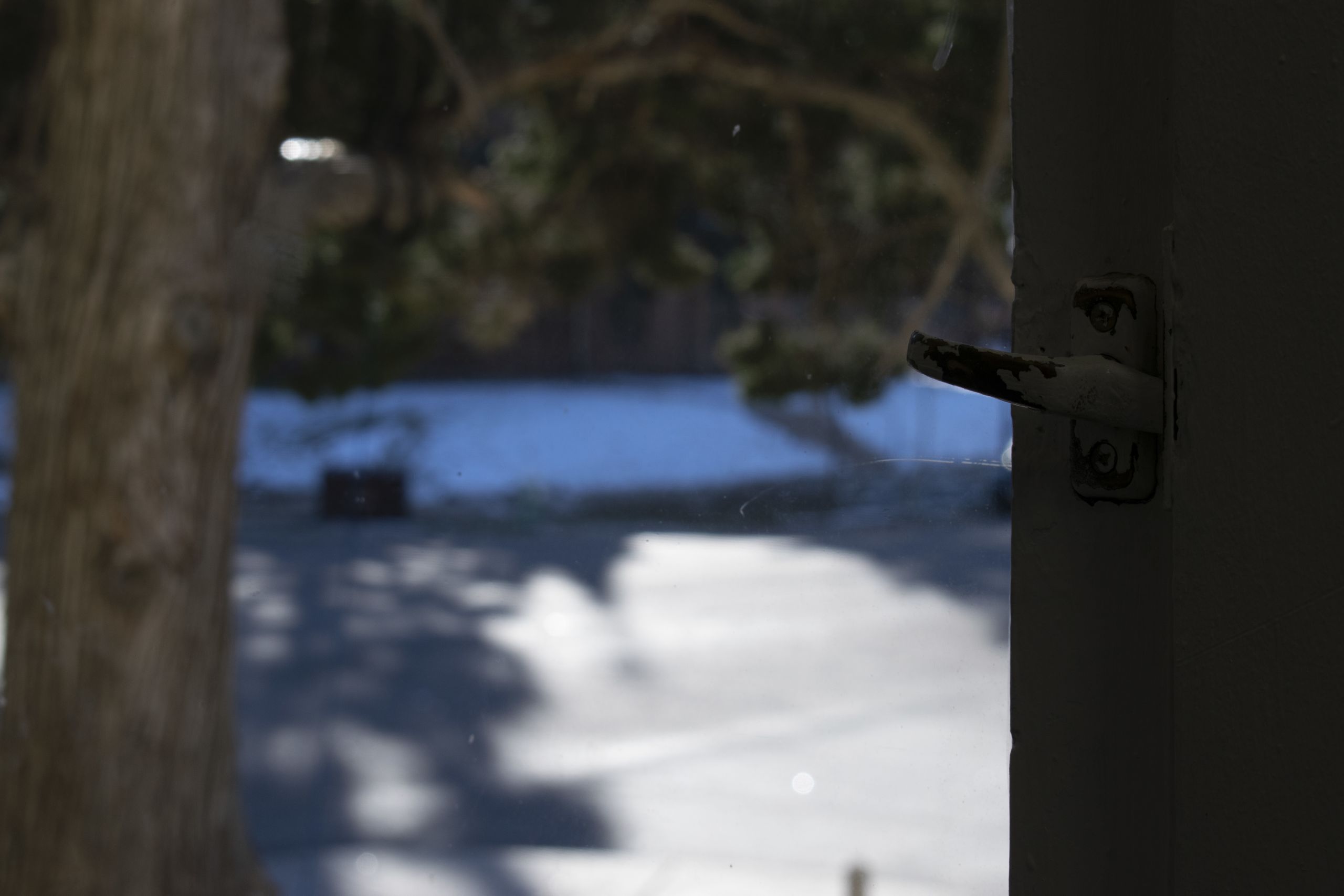
Adam Wenzlaff told me his thoughts on these difficulties.
“Fraternities are a social thing. People join them to be part of a community, meet like-minded people, and be a part of a family. Not being able to congregate and not being able to expand and meet those people – sharing those bonds, definitely affects fraternities. I think that the largest effect has been on people’s mental health – being isolated and not being able to speak to friends, having so much change in their lives has had a huge effect on their lives.”
Some students and local professionals on the Hill shared their experiences with the lockdown after it had ended as well:
“We should have been allowed to come here and have all in-person classes or not be allowed to come here at all. It is tough when we do not have a set game plan and the situation is always changing. There is a lack of trust now with students and the board at school, having things granted and then taken away, it's harming our relationship.” – Baker Dill, Freshman
“It (the lockdown) seems pretty extreme between the callout of the age group and 36 individual residences on the Hill. I think it’s difficult to navigate gatherings and allowing people to live.” – Colten Miller, operations and logistics at CU
Most the people I spoke with tended to understand and agree with the reasons for the lockdown but had concerns about the way it was affecting the community at large.
Within my house, brothers were drinking more by themselves, bickering over the phone, and hitting the punching bag far more often than usual. No one wanted to be here and everyone had to be. Cabin fever was the purveying sickness in our little world.
I spent much of my time failing to predict what would come next and asking many of the questions I have tried to answer here.

The 18-22-year-old lockdown has been lifted but complications between fraternities and the city are not over. Sigma Alpha Epsilon received a hefty fine from the IFC and elected to leave the fraternal network in September. Kappa Sigma received a COVID violation fine from the IFC in October which resulted in the loss of several house privileges, including the ability to induct new members this fall.
Instead of being engaged with the proactive measures taken by the IFC, and the work that has been done between BCPH, the IFC, and the University of Colorado Boulder, local news media have spent much of their time sowing division and placing blame.
I do not mean to say that local news does not have a responsibility to report on dangerous gatherings, but they also have a responsibility to protect the people they are likely to set public crosshairs on.
For every positive story about fraternities, there are likely hundreds of negative ones.
Wenzlaff read me a list of things the IFC had done since March:
“On March 15 the IFC issued a social moratorium on all events, so that was our first response to COVID. We issued a statement at that time, that all houses were to abide by city and state guidelines. During this summer, the IFC held bi-weekly meetings to keep up with it, which was the first time the IFC has ever met during the summer. We held a presidents’ retreat to educate people about the changing guidelines, which the CU dean of students, Jamey Banks, was also present for. The first week of the semester the IFC hosted a ‘safe chapters’ meeting with the Boulder County Police. The following day we met with Boulder fire department.”
Adam’s list goes on, and he claims none of these proactive measures were reported on or mentioned by local or state news, except for the fines given by the IFC once the rules they established were broken, which were donated to Clinica Health toward COVID-19 relief.
Goussetis said about the local coverage of COVID,
“I think reporters have a really hard job because they have to sell. I have worked very hard with reporters not to target CU students, but they continue to do that. They don’t take the time to look for the reasons underneath everything or why decisions were made the way they were. This does not change the situation. It doesn’t make it any better for people.”
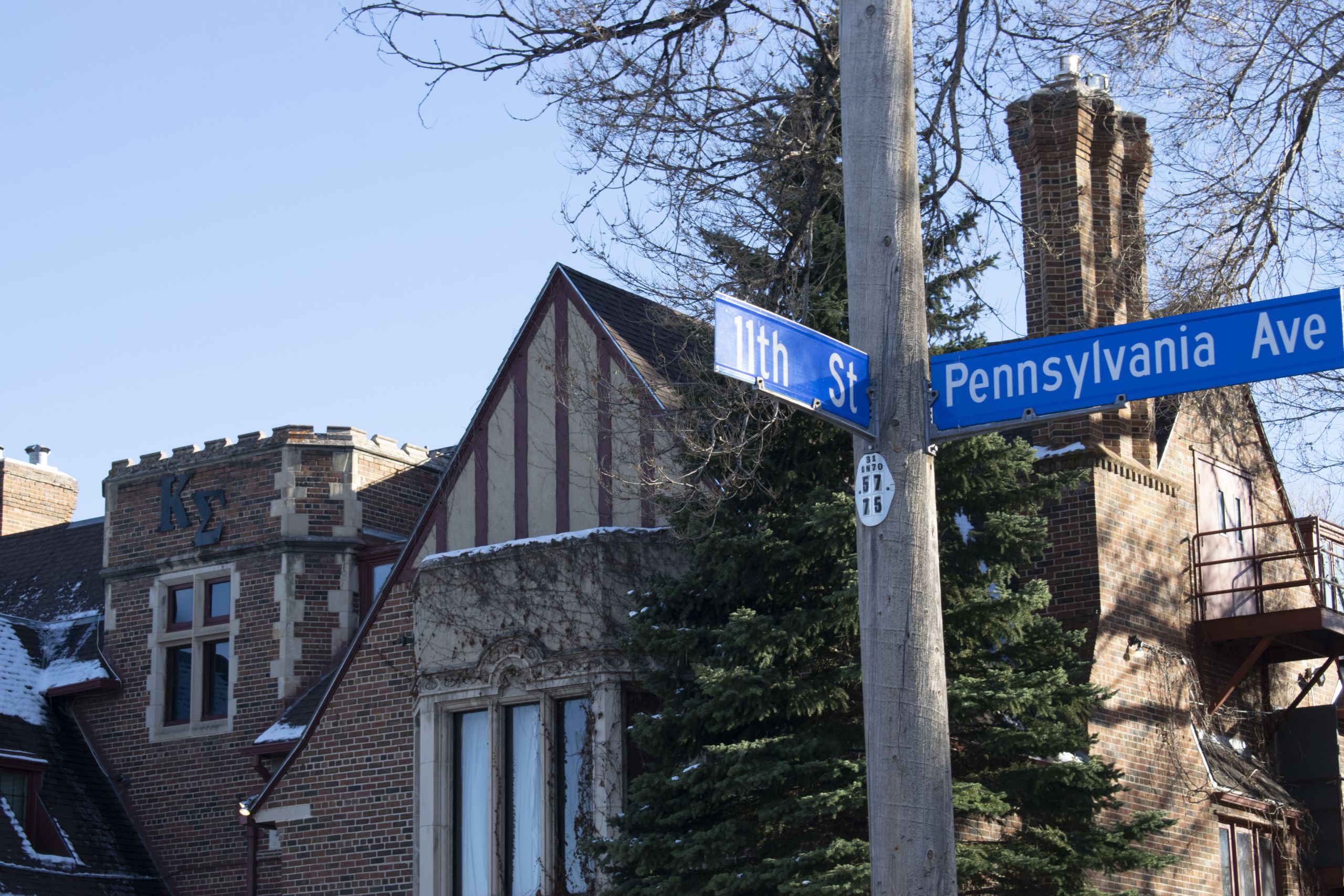
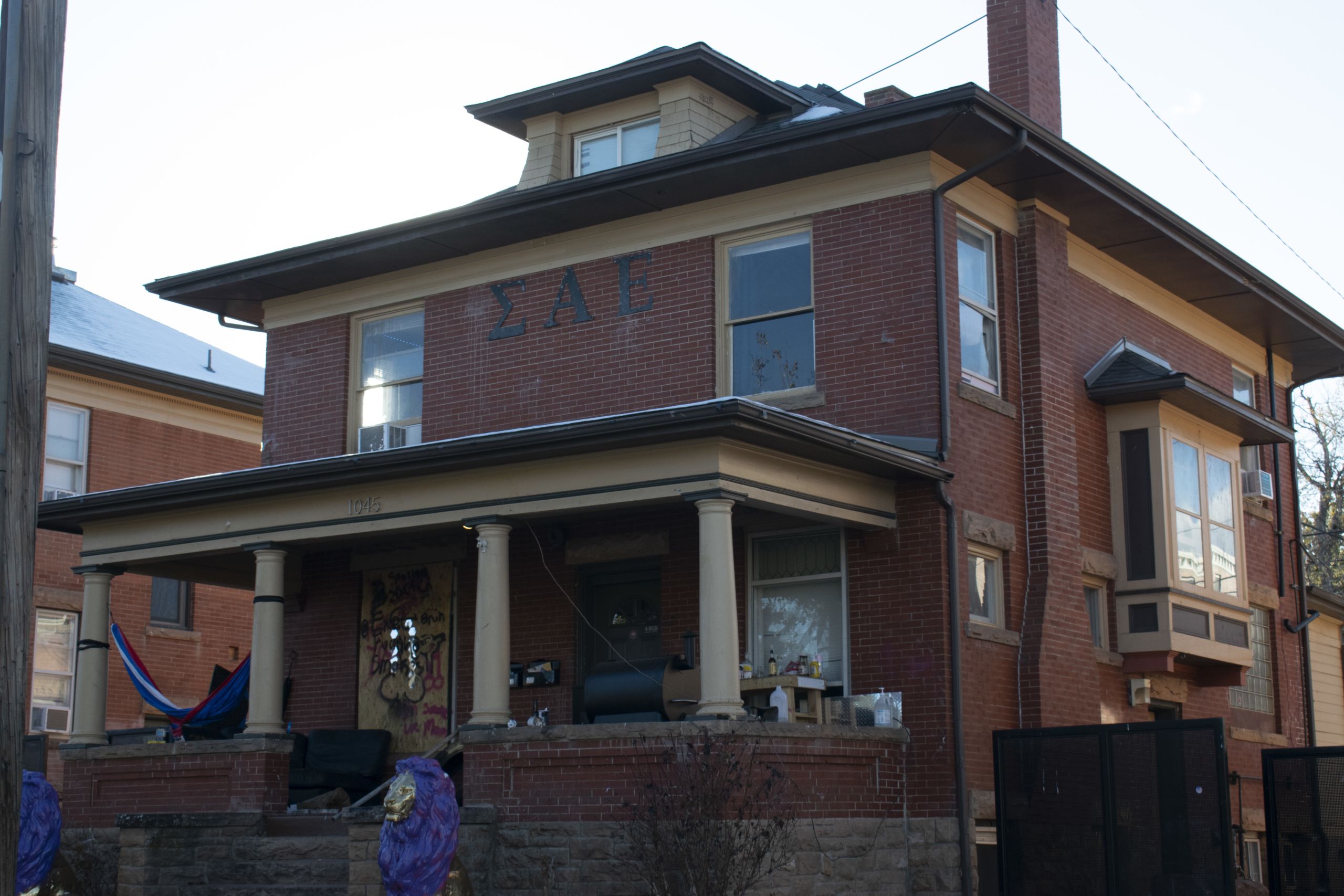
Journalists have a responsibility to report on who has done what and why, but I worry that if they rely on the need for someone to be at fault in order to sell, that they will be far more likely to be influenced by their biases and the biases of their readers.
Looking at the data, the promises of tomorrow seem bleak. Boulder instituted new regulations in November limiting the number of patrons in shops and grocery stores, as cases continue to rise.
“The projections don’t look good,” Goussetis told me with candor. “We’re seeing rises across the state and country. We think it is because people are tired, and they want to hang out with each other. I think it is going to be bad. We had a big space where we didn’t have any deaths for months and now, we’ve had five in the last two weeks.”
The whole of the Boulder community is in a tough position, as is much of the world. The information and recommendations from organizations like the WHO and the CDC change frequently, as do the attitudes of our representatives in federal and state government. A lack of trust between students, residents and officials is contributing toward a climate of blame and a lack of responsibility for the community that is making things more difficult than they need to be and is likely to be unsustainable long-term.
Fraternities that violate guidelines need to be punished and are, and those that recognize the fault of fraternity events as super spreaders should be able to also recognize the difference between a house that is proactively attempting to follow the rules, and one that throws caution to the wind. The convenience and temptation of generalization in the media will lead to a worse, even more tattered relationship between fraternities, the city of Boulder, and the university, which is the last thing I want. I want to strengthen this relationship and look at the situation from all sides. We need to come together as a community to establish what we can all do to help, and that starts with recognizing we are all in the same boat.
